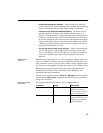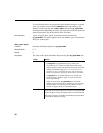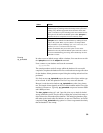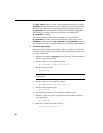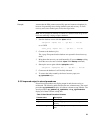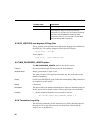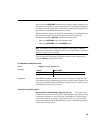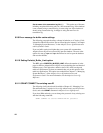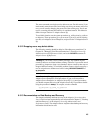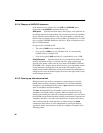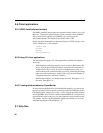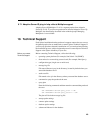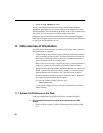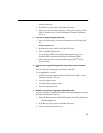
45
The same command can also be used to add a new user. For this reason, if you
inadvertently enter the user ID of an existing user when you mean to add a new
user, you are actually changing the password of the existing user. You do not
receive a warning because this behavior is considered normal. This behavior
differs from pre-Version 12 Adaptive Server IQ.
To avoid this situation, use the system procedures sp_addlogin and sp_adduser
to add users. These procedures give you an error if you try to add an existing
user ID, as in Adaptive Server Enterprise, and pre-Version 12 Adaptive Server
IQ.
9.5.12 Dropping users may delete tables
The following warning should be added to “Revoking user permissions” in
Chapter 10, “Managing User IDs and Permissions” in Adaptive Server IQ
Administration and Performance Guide, and to the
REVOKE statement in
Adaptive Server IQ Reference.
Warning! If you revoke a user's connect privileges, any database objects
owned by that user are deleted without warning. Likewise, if you use the stored
procedure sp_dropuser to drop a user, database objects owned by that user are
dropped without warning. To avoid this problem, remove objects owned by a
user or assign them to another user before issuing
REVOKE CONNECT or
sp_dropuser.
Note Procedures like sp_dropuser provide minimal compatibility with
Adaptive Server Enterprise stored procedures. If you are accustomed to
Adaptive Server Enterprise (or Adaptive Server IQ 11.x) stored procedures,
you should compare their text with Adaptive Server IQ 12 procedures before
using the procedure in
dbisql. To compare, use the command
sp_helptext
sp_name_in_question
9.5.13 Documentation on Data Backup and Recovery
The chapter on backup and data recovery in the Adaptive Server Anywhere
User’s Guide has been superseded by new information in Chapter 11, “Backup
and Data Recovery” of the Adaptive Server IQ Administration and
Performance Guide. The Adaptive Server Anywhere data backup and recovery
information should not be used.



